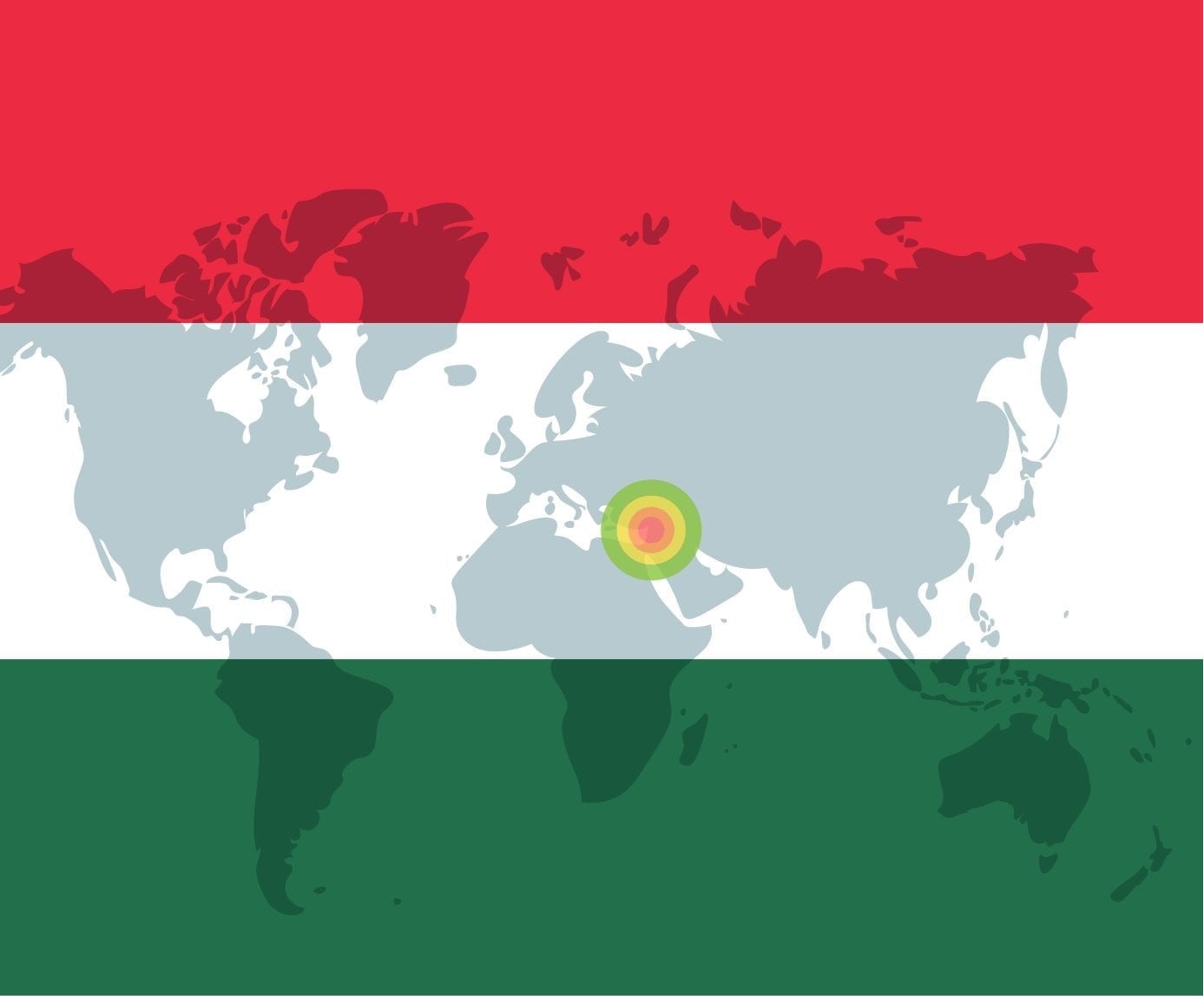- e-mail us
- We are Open
Study in Hungary
- Home
- Study in Hungary

This article takes a scientific approach to cover the process of studying in Hungary, immigrating to Hungary through education, and obtaining a Hungarian student visa. Located in Central Europe with low living expenses, Hungary is a popular destination for many international students. As a result, numerous questions arise, such as: What documents are required for studying in Hungary? Is it possible to study in Hungary without a language certificate? What are the advantages and disadvantages of studying in Hungary? This article provides an overview of the most important and fundamental aspects of studying in Hungary. For further information about studying in Hungary, you can Talav Company for a free consultation.
Topics covered in this article:
– academic opportunities in Hungary & Conditions
– Education in Hungarian primary schools
– Education in Hungarian secondary schools
– Undergraduate programs in Hungary
– Graduate programs in Hungary
– Doctoral studies in Hungary
– Introduction to universities in Hungary
– Scholarships available for studying in Hungary
– Costs associated with studying in Hungary
– Student visa prerequisites for Hungary
– Commonly Asked Questions
– Last words about Studying in Hungary

academic opportunities in Hungary & Conditions
Hungary, located in Central Europe, with Budapest as its capital, is a member of the Schengen area. It borders Austria, Slovakia, Ukraine, Romania, Serbia, Croatia, and Slovenia. Hungary has a democratic government, with Hungarian as the official language and Christianity as the predominant religion. The currency used is the Hungarian forint (HUF).
Hungary has a population of approximately 9.8 million and covers an area of 23,000 square kilometers. Budapest alone has a population of about 1.73 million, making up nearly a quarter of the country’s population. There are around 30,000 international students studying across various cities in Hungary. English is a mandatory subject from elementary school onwards. The Hungarian education system follows the Bologna process, emphasizing grades rather than average scores, with final exam results scaled from 1 to 5.
Education in Hungary encompasses elementary school, high school, and university levels, including undergraduate, postgraduate, and PhD programs. The benefits of studying in Hungary include the ability to bring dependents at the postgraduate and PhD levels, working while studying for up to 20 hours per week, the option to study without a language certificate, courses offered in German and English, and the potential for permanent residency through a work visa after graduation.
Education in Hungarian primary schools
The Hungarian school system, known as the first cycle, caters to students aged 7 to 14 and follows the European educational model, divided into eight grades. Each grade typically includes children of the respective ages: 6-7, 7-8, 8-9, 9-10, 10-11, 11-12, 12-13, and 13-14. For postgraduate and PhD students, a reunification visa is generally available, but for school students, parents must either have a legal guardian in Hungary or the student must study at a boarding school to qualify for a student visa. The Immigration Office of Hungary grants companion visas under specific conditions.
Education in Hungarian secondary schools
High school education in Hungary is divided into three levels, equivalent to the lower and upper secondary education and university preparatory courses. This system, based on the European model, serves students aged 16 to 18. Generally, a reunification visa is not issued for high school education unless under certain conditions approved by the Immigration Office. Students must have a legal guardian or attend boarding schools.
Undergraduate programs in Hungary
Undergraduate programs in Hungary typically last 3 to 4 years and require a valid high school diploma. Language certificates are not mandatory; students can learn German or English during their studies. Undergraduate students are not eligible for a reunification visa but can work up to 20 hours per week during the academic term and full-time during holidays.
Popular fields of study include pre-medicine and medicine. Students often take pre-medical courses in Hungary and then sit for university entrance exams in Hungary or other countries like Austria, Germany, and England.
Graduate programs in Hungary
graduate programs in Hungary last 1 to 2 years and require a relevant undergraduate degree. The field of study must be related to the undergraduate course. Language certificates are not necessary; students can learn the required language during their studies. Postgraduate students can work up to 20 hours per week and full-time during breaks. Family members of postgraduate students are eligible for a reunification visa.
Doctoral studies in Hungary
PhD programs in Hungary span 3 to 5 years and require a relevant postgraduate degree. Studying for a PhD without a scholarship is possible, and students can learn the required language during their studies. To obtain a scholarship, high language proficiency, published international articles, a high GPA, and excellent scores are necessary. Applicants need to send their resumes to university professors and secure confirmation from a supervisor.
PhD students can work up to 20 hours per week and engage in research work with university and Immigration Office approval. Family reunification visas are also available at this level.
Introduction to universities in Hungary
Hungary attracts a significant number of international students due to its inclusive policies. Currently, over 30,000 students study in Hungary across cities like Budapest, Debrecen, Miskolc, Szeged, and Pecs. Admission to Hungarian universities is a prerequisite for obtaining a student visa. Here are some notable universities in Hungary:
- Andrássy University Budapest: Art, economics, law, and social science
- Budapest University of Technology and Economics: Computer science, IT, economics, social science, and engineering
- Corvinus University of Budapest: Computer science, IT, economics, and social science
- Eszterházy Károly University: Agriculture, art, computer science, IT, economics, and social science
- University of Debrecen: Agriculture, art, computer science, IT, economics, medicine, and engineering
Scholarships available for studying in Hungary
Hungary has introduced the Stipendium Hungaricum program to accommodate the increasing demand for scholarships. In 2018, over 4,100 students received scholarships to study in Hungary in English and Hungarian. This number rose to 5,000 in 2019. The program targets students from countries with cultural agreements with Hungary or those involved in student exchange programs.
Scholarships cover 2 to 4 years for undergraduate studies, 1.5 to 2 years for postgraduate studies, 2+2 years for PhD studies, and 5 to 6 years for continuous postgraduate studies. These scholarships include tuition waivers and monthly allowances (130 euros for undergraduate to PhD levels, 450 euros for the first PhD period, and 580 euros for the second PhD period). Accommodation is provided, along with a 120-euro monthly allowance for living expenses and healthcare coverage up to 205 euros. Scholarship applications open on January 15th, with results announced in July. Students must arrive in Hungary by September 30th.
Required documents for scholarships include language certificates, a statement of purpose (SOP), and previous academic records. PhD applicants also need a research plan and two recommendation letters.
Costs associated with studying in Hungary
Education in Hungary at various levels is not free and requires fees ranging from 500 to 600 euros per semester. Medical and dental studies cost between 3,000 to 4,000 euros, while engineering programs cost 16,000 to 25,000 euros. Enrollment and exam fees are about 15 euros. Detailed information on the costs of living and studying in Hungary is provided below.
University tuition | Around 2,000 euros per month |
Dormitory rent | 80 to 100 euros per month |
Private flat | 240 to 400 euros per month |
Shared flat | 100 to 180 euros per month |
Food | 125 euros per month |
Entertainment | 40 euros per month |
Bike riding | Free |
Public transportation | 13 euros per month |
Student visa prerequisites for Hungary
Obtaining a student visa for Hungary requires specific documents, detailed below. It’s important to note that the minimum age for applying for a university-level student visa and residency in Hungary is 18, and the process can take between 1 to 3 months.
The necessary documents for a student visa application include:
- All academic transcripts and degrees obtained
- Statement of Purpose (SOP)
- Language certificate (if required)
- Tuition fee receipt
- Passport-sized photographs
- Identification documents
- Proof of financial capability to cover living expenses in Hungary
- Embassy fee receipt: 60 euros for applications at Hungarian embassies, 18,000 forints within Hungary
- Lease agreement for at least one month in the city where you will study
Commonly Asked Questions
✅ Is education free in Hungary?
No, unless you receive a scholarship, you are required to pay tuition fees.
✅ Is it possible to study in Hungary without a language certificate?
To avoid reducing your chances of obtaining a visa, it is recommended to provide a language certificate.
✅ Can scholarships be obtained from Hungarian universities?
Scholarships are generally awarded to PhD students, and you need to have an impressive CV, including high language proficiency scores and published articles in reputable journals.
✅ Can I work in Hungary after graduation?
After graduation, you have the opportunity to find a job in Hungary. If successful, you can convert your student residency to work residency.
Last words about Studying in Hungary
All aspects of studying in Hungary and the relevant conditions were covered in this article. If you require further information about studying in Hungary and student visas, feel free to contact us at Talav Company for a free consultation.

for immigration & Travel
Useful Links
Warning! The information provided on this website is based on research conducted by non-legal professionals, and Talav Company does not assume legal responsibility for the accuracy or reliability of this content.
We highly recommend that you independently verify this information and consult with a qualified local attorney to ensure it is applicable to your specific situation.

